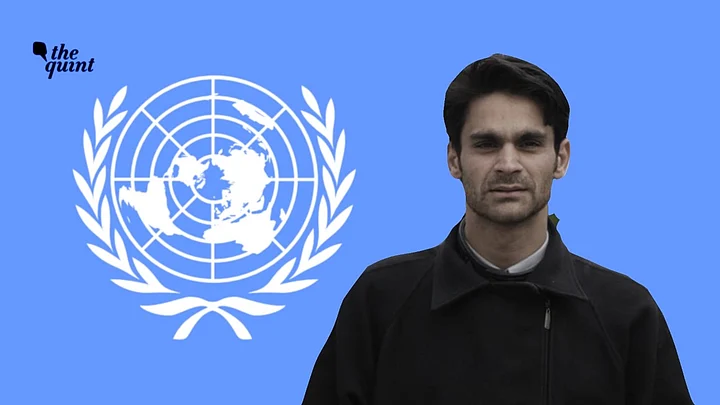Queries from no less than five UN Rapporteurs on a custodial death, a disappearance, and the alleged torture of a leading light of Kashmir’s politics is horrifying at so many levels that it looks like a putrid mess.
According to the UN Rapporteurs’ letter, Irfan Ahmad Dar, 23, was brought home dead on 16 September 2020, a day after he had been taken to the Sopore police station by special operations policemen in plain clothes without a warrant.
Irfan’s body apparently had brutal injuries on his face and head. The Rapporteurs say the family was given only ten minutes to see his body before it was buried —apparently without a post-mortem examination.
Another young man, Naseer Wani, is missing since he was taken away by the police in Shopian on 29 November 2019. The Rapporteurs say his family has been told not to ask for an investigation into Naseer’s whereabouts.
Waheed Para’s Case
Then there is the case of Waheed Para. According to the Rapporteurs, Para was first threatened and later arrested, tortured, and humiliated by the National Investigation Agency (NIA) after he spoke to UNSC members in a closed virtual meet.
The Rapporteurs write that Waheed, who is the youth president of the PDP, was stripped, beaten, hung from his feet, and kept in a dark, underground space in sub-zero temperature.
Rapporteurs: Leading Lights
The account of his torture comes from 5 UN Rapporteurs — the UN’s designated Rapporteurs on torture, arbitrary detention, enforced disappearance, on arbitrary executions, and on protection of human rights and fundamental freedoms while countering terrorism.
The UN appoints highly-regarded persons from different parts of the world to report on specific topics of concern. They function outside the UN bureaucracy.
The Rapporteurs say the NIA only allowed Waheed to meet his lawyer once, and a relative on a separate occasion, all under surveillance.
No Legal Fig Leaf
That the government apparently has not responded to these very upsetting charges only gives credence to the points raised. That is regrettable, for the government could give its viewpoint.
For instance, some authorities as well as residents of Shopian say they are convinced, on the basis of video evidence and a sighting near Banihal, that Naseer Wani went underground and become a militant as soon as he left the forces’ camp to which he had been taken.
Especially without a response, the queries might suggest to uninformed readers that the State just does away with dissidents.
Conversations on the ground indicate that there is general wariness about protest or dissent, but not the sort of pall of death and horror that the letter might suggest.
Huge Investigation Should Have Yielded More
As for Waheed, surely the agencies should have had enough technical, human, and other means to gather evidence over the past several years. One has heard of suspicions about him, even that he was questioned by the NIA, even when the PDP-BJP government was in office more than three years ago.
The case has become embarrassing now. For, even after interrogating large numbers of his associates over the past few months, it is not clear that investigators have solid evidence of wrong-doing.
It seems the Investigating Officer has been changed, and many of the allegations in the charge-sheet against Waheed are under section 161 of the CrPC (statements to the police rather than a magistrate).
The version of the five Rapporteurs would seem to explain why the special NIA judge threw out the terrorism case against Para for lack of credible evidence, and why Para was immediately detained again after that judge freed him. Since then, he has been in the custody of the shadowy Counter-Intelligence Kashmir (CIK) cell of the J&K Police.
If a politician like Waheed, who had achieved outstanding stature during the PDP-BJP rule from 2016 to 2018 despite his young age, has indeed been charged with terrorism as punishment for speaking to members of the most powerful world body, one has to look for a stronger word than horrifying.
Treatment in Police Custody in Srinagar
I am told he was put in a sub-zero temperature space after he raised some objections in court.
He is reported to be exercising and praying regularly, but appears to have some mood swings. He was taken for psychiatric consultations in Srinagar I am told.
Yet, it seems that Waheed has argued with other detainees for peaceful, democratic means for bringing change — as he has always done in the past. According to a former detainee, Waheed actually convinced some of the pro-militancy men among the detainees.
Charged Immediately After UN Query Went Public
The CIK formally charged Para a day after the UN human rights body published the queries of the Rapporteurs on 31 May. That seems like too much of a coincidence.
The letter with the queries had stated that this correspondence, including the government’s response, would be published two months after the queries had been raised.
It would seem that the government is veering uneasily between hoping that the issue will go away, and doubling down on a muddy path.
One so wishes that the government would boldly utilise the massive diplomatic heft it is said to have gained in the international arena to convince foreign governments and world bodies about such matters.
(David Devadas is the author of ‘The Story of Kashmir’ and ‘The Generation of Rage’ in Kashmir (OUP). He tweets @david_devadas. This is an opinion piece and the views expressed are the authors’ own. The Quint neither endorses nor is responsible for them.)
(At The Quint, we question everything. Play an active role in shaping our journalism by becoming a member today.)
